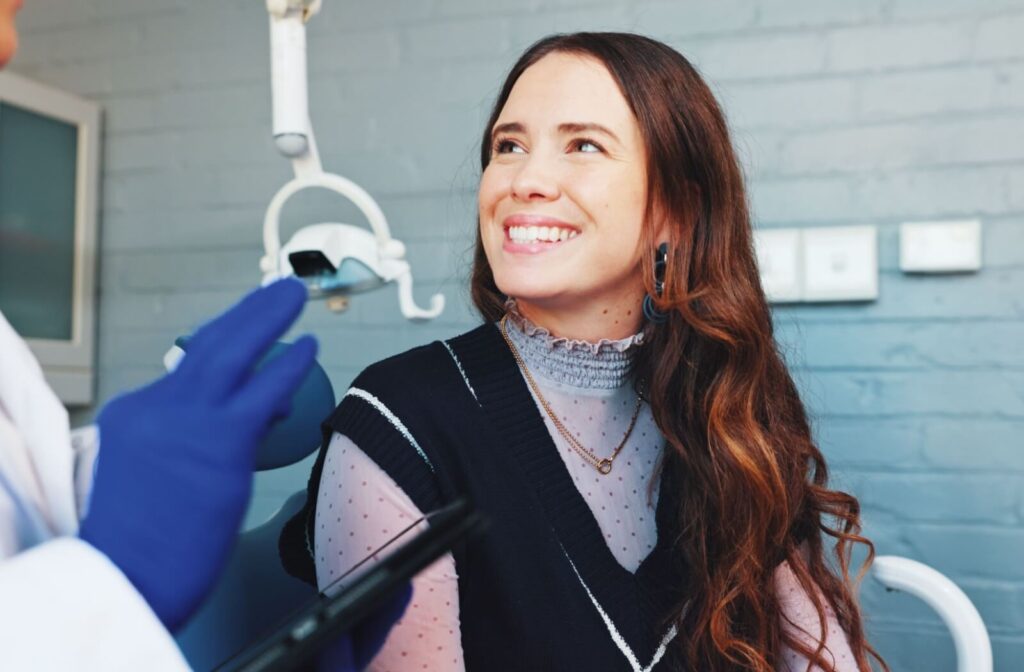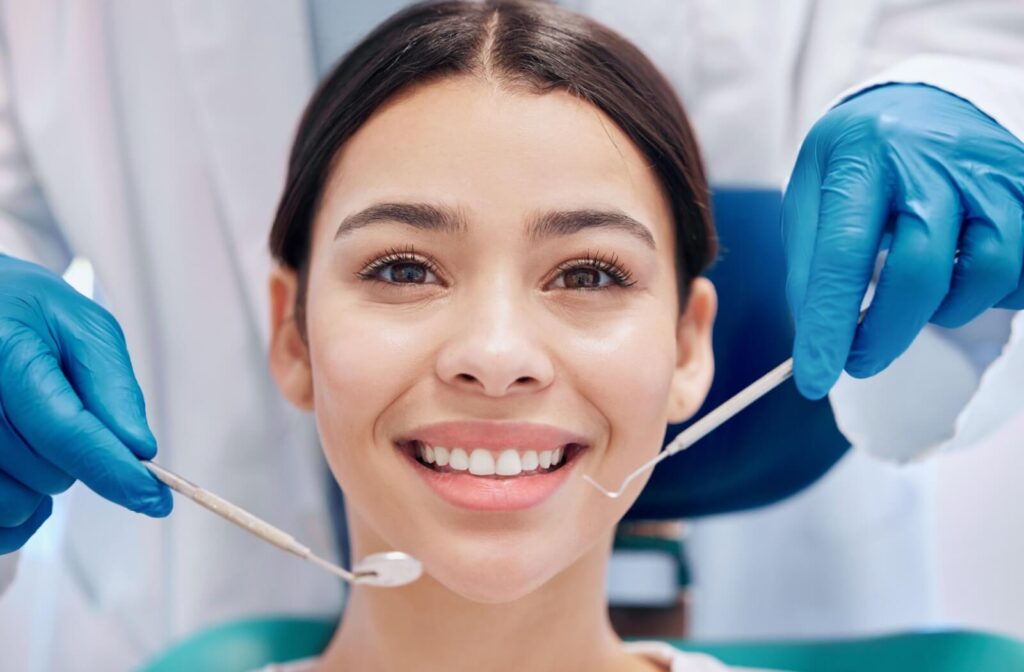Keeping your smile healthy is an important part of your overall well-being. You likely brush and floss every day, but you might wonder if your regular dental exams and cleanings are scheduled correctly.
For many people, getting a professional teeth cleaning every six months is a great guideline for maintaining good oral health. However, your own health history and daily habits help determine the schedule that’s right for you. Your dentist can help determine how often you should come in for a cleaning.
Why a Professional Teeth Cleaning Is Important
Regular dental cleanings are a key part of your oral health routine. A professional cleaning removes hardened plaque—called tartar—that you can’t get rid of with your toothbrush at home. This helps prevent common issues like cavities and gum disease.
These visits are also an opportunity for your dentist to spot potential concerns early, which is a key component of a comprehensive dental exam. It’s a straightforward way to keep your teeth and gums healthy for the long term.
The General Guideline for Dental Cleanings
For many people, a dental cleaning every six months is a good schedule to follow. In fact, this is the frequency recommended by the Canadian Dental Association to manage plaque and tartar buildup and maintain good oral health. However, it’s just a general recommendation.
Factors That Influence How Often You Need A Clean
- Your daily oral hygiene habits
- Your diet & lifestyle choices
- Certain health conditions like diabetes
- A history of cavities or gum disease
What to Expect During Your Dental Appointment
A routine dental cleaning is a simple process that typically takes about 30 to 60 minutes. Your comfort is the main focus throughout the visit. Here’s a look at what you can typically expect.
- A Check-Up of Your Mouth: Your dental hygienist will start with a quick examination of your mouth.
- Plaque & Tartar Removal: Your hygienist will carefully remove plaque and tartar from around your gum line and between your teeth.
- A Deep Polish: Next, your teeth will be polished with a gritty paste that helps remove surface stains.
- Expert Floss & Rinse: Your hygienist will floss your teeth to remove any leftover paste or plaque, followed by a rinse.
- Fluoride Treatment: You may receive a fluoride treatment at the end of your visit to help protect your teeth against cavities.
The Benefits of a Regular Dental Visit
When you stay on top of your dental cleanings, you may notice several positive changes in your oral health. Regular appointments are a proactive way to care for your smile, as they:
- Help prevent cavities from forming
- Reduce your risk for gum disease
- Lead to fresher breath
- Keep your smile bright by removing surface stains
Does a Teeth Cleaning Remove Yellow Stains?
A professional cleaning can make your smile appear brighter by polishing away stains from foods like coffee, tea, or tobacco that may not be removed by regular brushing. It’s different from a whitening treatment, which uses specific agents to change the natural shade of your teeth.

Common Questions About Teeth Cleanings
It’s normal to have a few questions about your dental care. Many people ask about the frequency of their cleanings and how to care for their teeth between appointments. Here are some answers to common topics that come up.
Are There Downsides to More Frequent Cleans?
For most people, there are no disadvantages to professional teeth cleaning. Some individuals may experience temporary tooth sensitivity after a clean. It’s also worth noting that, while many private dental insurance plans and programs like the Canadian Dental Care Plan (CDCP) offer coverage, more frequent visits could involve out-of-pocket costs, depending on your plan.
How to Care for Your Teeth Between Visits
Good at-home care is just as important as your professional cleanings. Following the proper techniques for brushing and flossing is key to maintaining a healthy smile between appointments. Try to:
- Brush for two minutes, two times a day.
- Floss at least once every day.
- Ask your dentist in Stouffville for recommendations on brushes, paste, or rinses that suit your needs.
Find Your Ideal Teeth Cleaning Schedule
Ultimately, how often you should get your teeth cleaned is a conversation between you and your dental team. Your dentist can assess your oral health and recommend a schedule that helps you achieve your goals. This personalized approach supports your long-term health.
A consultation with your dentist in Stouffville is a great way to create a routine that works for you and your family. If you’re ready to discuss your oral health, contact our team at Shin Dentistry today.



